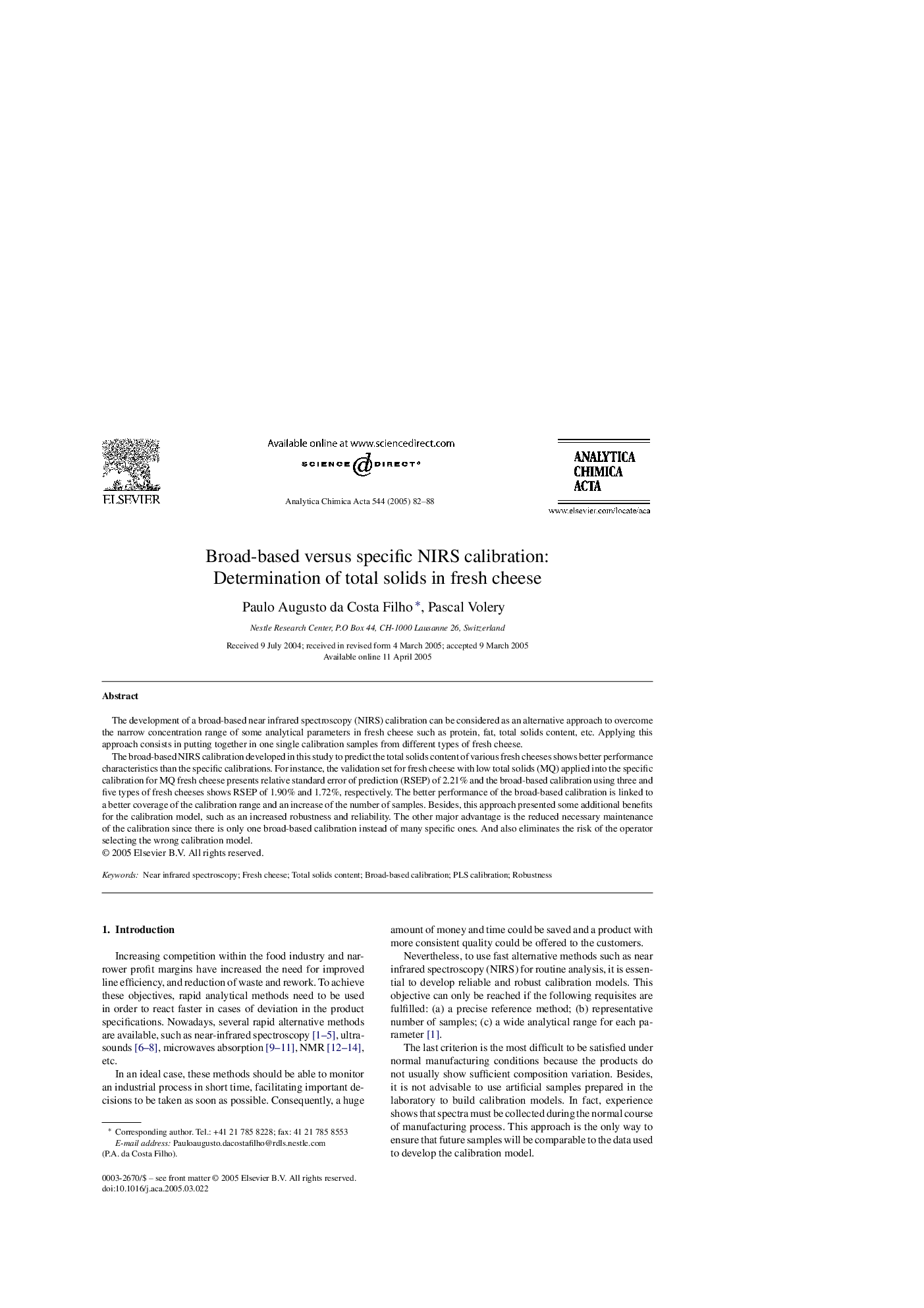| Article ID | Journal | Published Year | Pages | File Type |
|---|---|---|---|---|
| 9743522 | Analytica Chimica Acta | 2005 | 7 Pages |
Abstract
The broad-based NIRS calibration developed in this study to predict the total solids content of various fresh cheeses shows better performance characteristics than the specific calibrations. For instance, the validation set for fresh cheese with low total solids (MQ) applied into the specific calibration for MQ fresh cheese presents relative standard error of prediction (RSEP) of 2.21% and the broad-based calibration using three and five types of fresh cheeses shows RSEP of 1.90% and 1.72%, respectively. The better performance of the broad-based calibration is linked to a better coverage of the calibration range and an increase of the number of samples. Besides, this approach presented some additional benefits for the calibration model, such as an increased robustness and reliability. The other major advantage is the reduced necessary maintenance of the calibration since there is only one broad-based calibration instead of many specific ones. And also eliminates the risk of the operator selecting the wrong calibration model.
Related Topics
Physical Sciences and Engineering
Chemistry
Analytical Chemistry
Authors
Paulo Augusto da Costa Filho, Pascal Volery,
